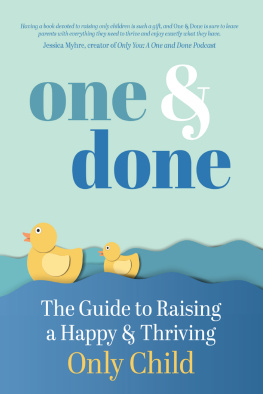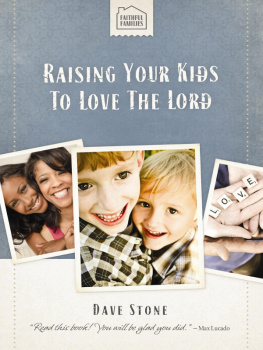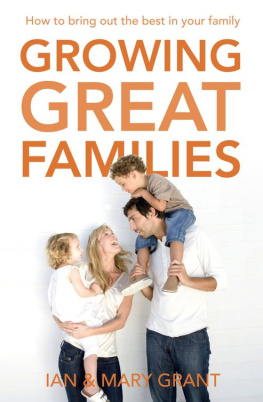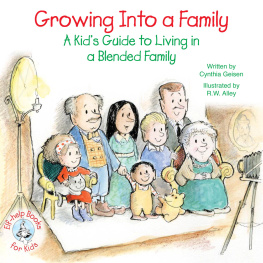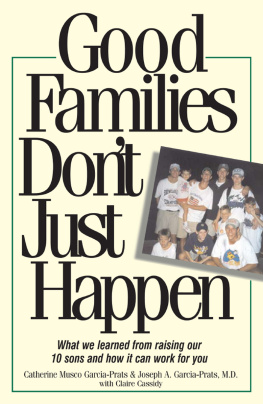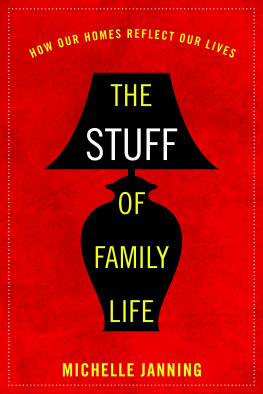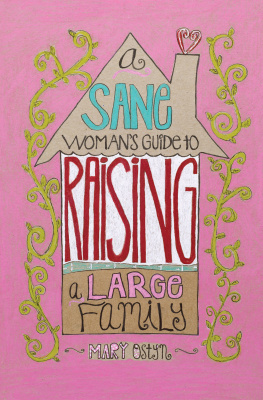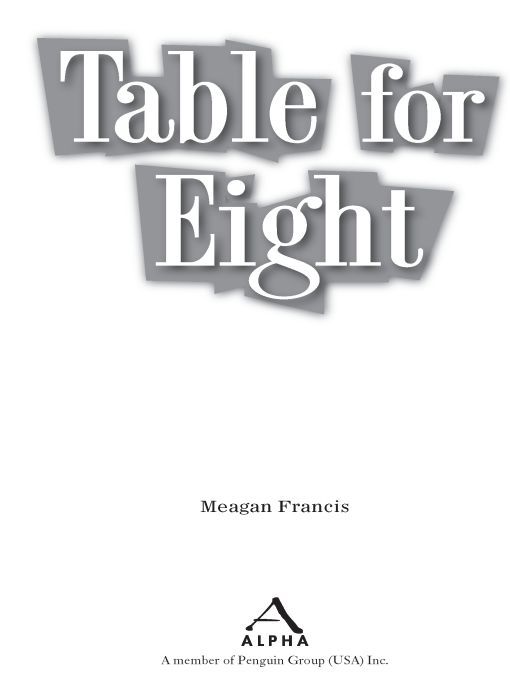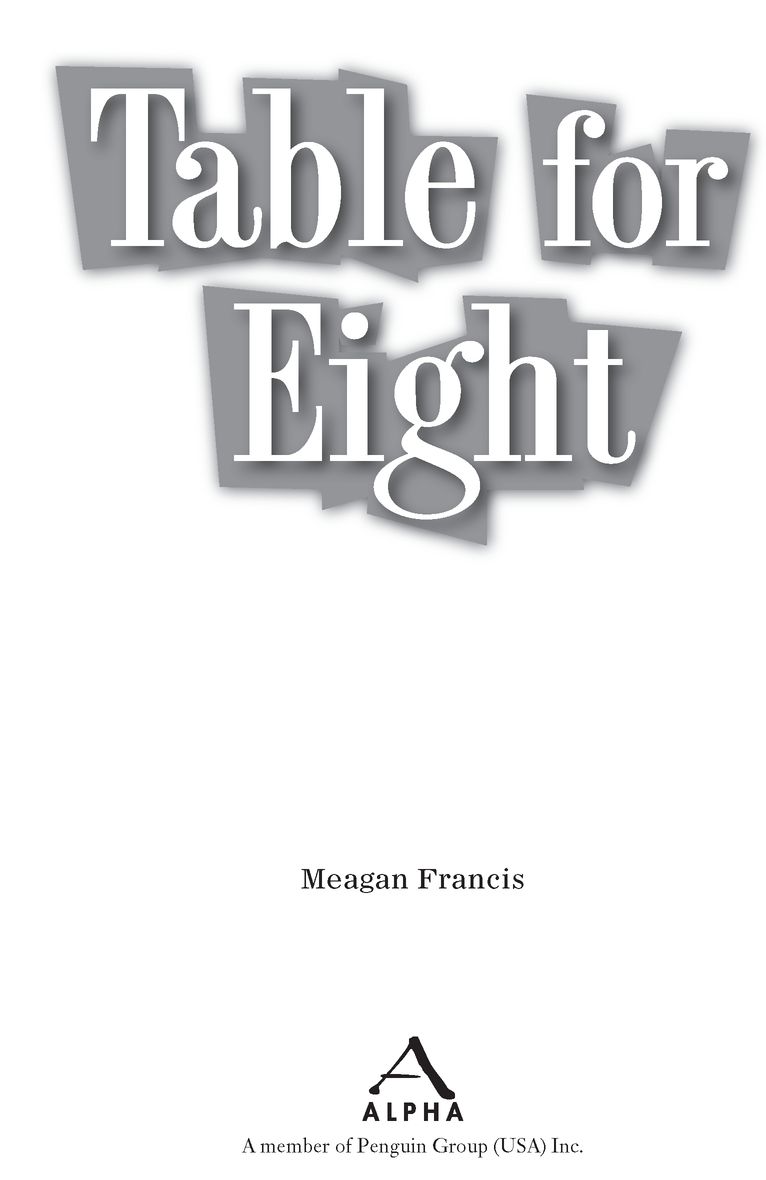Table of Contents
Introduction
When my husband and I had two kids, the world seemed specially created just for our little family. The four of us fit comfortably into nearly any passenger vehicle and even had room to spare for luggage or groceries. When traveling, we bunked down easily in hotel rooms without need for extra cots or an uncomfortable night for somebody on a hard and thinly-carpeted floor. If there were discounts for child travelers, we were always under the limit. When we went out to eat, we all fit into a booth. Three-bedroom houses or apartments were plenty big enough for us; if we had to, we could live fairly comfortably in a two-bedroom home.
When I had one child, everyone I met seemed to wonder when Id have my second, and when I had my second, people seemed to view us as a perfectly completed set.
Then I got pregnant with my third child, and suddenly, eyebrows went up.
The comments and questions began. Parents who were struggling with one or two kids were baffled that I would be so crazy as to add another. They wondered if I was just a glutton for punishment or if I had some secret formula they didnt know about. Besides, they wondered, how could I possibly afford them all? Everyone knows kids cost hundreds of thousands of dollars!
Growing up with four siblings, Id never really thought of a three-kid family as unusually big, but as I looked around me, I realized how few people I knew who had more than two children. When we added our fourth son last year, we were double the size of most families we know. And of course, you can imagine the reaction we got at number four: if three was weird, to many people, four was downright crazy!
In 1976, an American woman had a 36 percent chance of giving birth to four or more children in her lifetime, and about 60 percent had families of three children or more. Today, the number of women who can expect to have three or more has been cut in half to 29 percent, while those with four or more children has dwindled to 10 percent.
According to some social scientists, those numbers may be making a slow rise again. In the past year or so, big families have gotten some big press. Phrases like three is the new two and four is the new three have been tossed around in the media, indicating that more and more families may be choosing to expand beyond one or two kids.
Its true that many parents still have lots of kids for religious reasons. Catholics, Orthodox Jews, and Latter-Day Saints (sometimes called Mormons), as well as certain fundamentalist Christians, encourage large families. And Latino culture often promotes big families, which may cause an upswing in the American birth rate due to immigration.
Some social scientists point to the at-home mom revolution as the cause of this mini-baby-boom. For many working families, they say, the jump from two to three kids is when child care becomes unaffordable. So having more momsand possibly, dadswilling and able to stay home makes it possible to have larger families.
And who knowswith celebrities like Angelina Jolie adopting large numbers of children from other countries, perhaps adoptive large families are the next big thing! And if you mention the fact that bigger families tend to be so because of their culture/religion? Its the elephant in the room to many people.
Of course, that doesnt mean the rest of the world has caught up yet.
Parents of larger families sometimes find it difficult to fit into a culture thats been rearranged to accommodate a family of three or four. Attitudes about what parents should provide children have shifted: its pretty much expected that kids these days shouldnt have to share a bedroom, toys, or clothes with a sibling and many will have fully-funded college savings plans by the time theyre eighteen. Fitting a family of three or more small children into todays average-size car can be nearly impossible once you factor in safety seats, while even many behemoth sport-utility vehicles only fit five comfortably (while still costing a fortune in gas!).
And its not just the logistics, but reactions from others that big families have to deal with. While two kids usually seem completely socially acceptableideal, reallythe birth of the third child seems to open parents up to a variety of nosy and sometimes downright rude reactions, from raised eyebrows to prying questions (my favorite: So, uh, do you know how to use birth control?). And when parents choose to expand to four, five, six kids, or more, they are often treated like theyre crazyor just plain stupid. Even if your family fits in where you livefor example, Utah is the one state that still averages three kids per familyyou may still feel like an oddball when it comes to the expected standard of living that can make raising more than one or two kids trickier.
Families end up with a larger-than-average family in a variety of ways. Maybe you plannedor are still planningto have lots of kids. Maybe you were surprised with a series of unexpected pregnancies. Or maybe you found yourself doublingor tripling!your family size all at once by marrying somebody with kids, adopting siblings, or giving birth to multiples. No matter how we get there, all parents with larger families face the same questions. Where will we put them all? How big a house do we really need? What kind of vehicle will accommodate all the kids without costing a fortune to run? How can we possibly give each child the attention he or she needs? And sometimes we may wonder if we are doing the right thing by bringing so many kids into the world!
This book is for anyone whos got more than the average number of kids, or whos curious about what its like to have a larger family in todays smaller-family-centered society. Ive spoken with a variety of parents raising as few as threeand as many as seventeen!kids, and theyve shared a wealth of wisdom, advice, tips, and encouragement that any parent can benefit from. If you already have a big family, this book is full of practical information you can use, on everything from home organization to discipline to finances. If you have a smaller family and want to see how seasoned moms run their households, deal with sibling issues, or maintain relationships with their partnerswhether or not you are thinking of having a larger family yourselfIm sure youll find this book a useful and entertaining source of information. And if you arent sure why anyone would do something so crazy as have three or four, five or six, or even more children, I hope to give you a window into our lives and some understanding of what make large families unique and wonderful.
Acknowledgments
Writing this book has been a learning experience! I would first like to thank the many parents who shared their tips, advice, ideas and philosophies on raising big families for this book. You are truly experts, and I know that readers will greatly benefit from your insights.
Thank you to my writing groups and to Laura Gross for support and encouragement.
Thank you to the writers at largerfamilies.com for sharing your wit and wisdomyou all are inspiring. And thanks to the greater blogging community of mothers with large and small families alike, whose insights and ideas have touched my own life and writing.
Thank you to my mom and dad for having a big family, and to my brothers and sisters for being a joy to be around. If it wasnt for all of you, Im sure Id have been terrified of having more than two!


